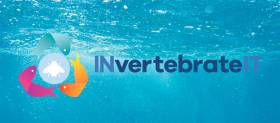Displaying items by tag: Insect Protein
New Project Launched To Revolutionise Fish Feed For Agriculture
#Aquaculture - The INvertebrateIT Project for the aquaculture sector, in which the Marine Institute is one of five partners, has been officially launched.
The project is focused on developing innovative approaches for aquaculture, particularly on the use of organic waste for the production of insects as alternative ingredients in fish feed.
INvertebrateIT aims to help aquaculture operators mitigate their current dependence on costly, volatile, and often unsustainable ingredients in traditional fish feeds, to diversify their business and to contribute to a better management of valuable organic waste and/or new algal substrates for invertebrate production.
This proposed integrated scheme builds on available technology in insect production and strategic policy for the aquaculture and waste sectors.
It is one of three projects selected to develop joint roadmaps and bankable demonstration projects in the Atlantic and North Sea to co-ordinate further investments for innovation.
Funding is provided by the European Maritime and Fishers Fund under the Blue Labs – Innovative Solutions for Maritime Challenges.
“Perhaps the most exciting part of the INvertebrateIT project is that we get to support innovation in an extraordinary growth sector,” said Silvia Sarria, INvertebrateIT's project co-ordinator and European policies division lead at Innogate to Europe.
“Creating a circular economy for fish feed and other aquaculture products by feeding fish with something they would eat in their natural environment, is a win-win for all involved.”
The project plans to engage SMEs to support project development which will commercially exploit opportunities combining sustainable aquaculture, invertebrate production and smart waste management. To that end, an open contest will soon be announced at www.invertebrateitproject.eu.





























































